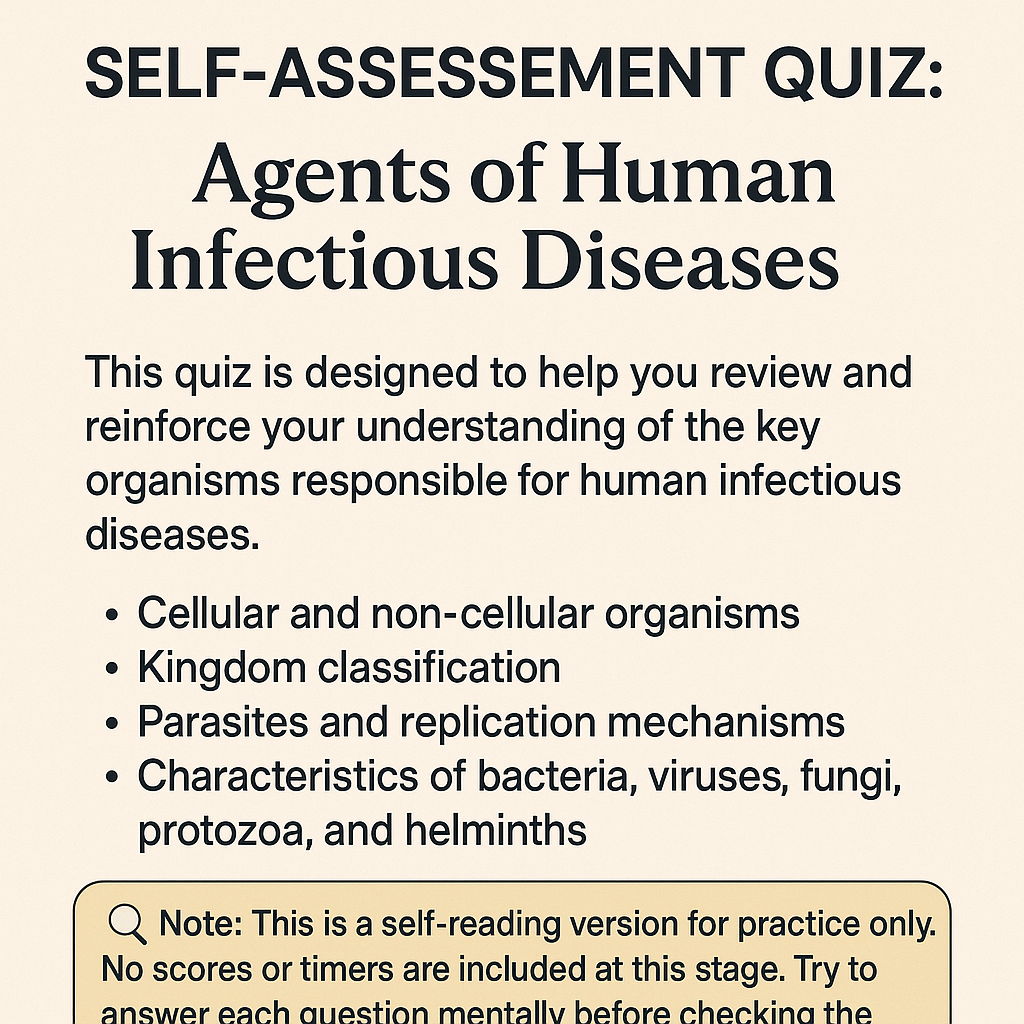Q50. What makes Mycobacterium acid-fast?
Hint: Mycolic acid-rich wall makes them resistant to decolorization.
Q51. Which stain is used for acid-fast bacteria?
Hint: Carbolfuchsin is retained by acid-fast organisms.
Q52. Peptidoglycan provides:
Hint: It maintains cell shape and resists osmotic pressure.
Q53. Peptidoglycan is found in:
Hint: It’s unique to bacteria.
Q54. Which enzyme breaks down peptidoglycan?
Hint: Lysozyme in tears and saliva attacks the backbone.
Q55. What do penicillins inhibit?
Hint: They block transpeptidase enzymes involved in cross-linking.
Q56. What is another name for peptidoglycan?
Hint: Murein is a synonym often used.
Q57. What causes septic shock in gram-negative bacteria?
Hint: Lipid A component is the toxic part.
Q58. What part of LPS is toxic?
Hint: Lipid A is responsible for endotoxic effects.
Q59. O antigen is part of:
Hint: Used in lab ID of bacteria.
Q60. Teichoic acids are found in:
Hint: A feature of gram-positive cell walls.
✅ Answer Key
Q50: C) High lipid content Q51: C) Carbolfuchsin Q52: C) Shape and rigidity Q53: C) Only bacterial cells Q54: A) Lysozyme Q55: C) Peptidoglycan cross linking Q56: C) Murein Q57: C) Lipopolysaccharide Q58: C) Lipid A Q59: C) Lipopolysaccharide Q60: C) Gram positive bacteria
